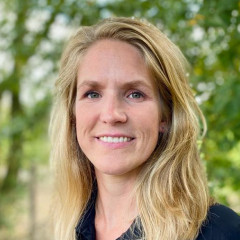Overview of specialists
In the overview below you will find with which specialists you can schedule an appointment. Currently affiliated with us are:
- Anesthesiologist, Intensivist, Pain specialist
- Dermatologist
- Ear-, nose- and throat surgeon (otolaryngologist)
- Neurologist
- Ophthalmologist
- Oral and maxillofacial surgeon
- Orthopedic surgeon
- Pediatrician
- Plastic surgeon
- Surgeon
If the overview doesn’t help you find the specialist your are looking for, please contact us. We will try to help you further.

You have a question about:
Anesthetic or epidural
The anesthesiologist (or anesthetist) is the medical specialist responsible for the anesthesia of patients who have to undergo surgery or other procedures. The anesthetist monitors breathing, consciousness, temperature, circulation, vital functions and pain.
Things you can discuss with the anesthesiologist:
- Explanation, risks and side effects of anesthesia, epidural or other anesthetic
- Awareness during anesthesia
- Memory problems / forgetfulness after anesthesia
- Anesthesia for a child
Skin disorders and sexually transmitted diseases
A dermatologist treats disorders of the skin and the adjacent mucous membranes. Treatment may consist of providing information and prescribing ointments, pills or injections. Surgery or light and laser treatments can also be indicated.
You can contact the dermatologist with questions about:
- Skin conditions such as:
- Skin cancer or precancerous conditions
- Birthmarks
- Psoriasis
- Eczema
- Infections
- Varicose veins
- Skin disorders of the external genitalia
- Sexually Transmitted Diseases (STD)
- Other skin conditions
Ear, nose, ears, head and neck area, face
An ear-, nose- and throat (ENT) surgeon treats abnormalities of the throat, nose, ears, head and nek area and the face. Treatment can consist of information, prescription of medication or surgery. An ear-, nose- and throat surgeon places grommets in young children or removes the adenoid or tonsils. Also, the ENT-surgeon does major ear- or nose surgery.
You can contact the ENT surgeon with questions about:
- Complaints of the nose, for example sinusitis or problems with patency of the nose.
- Complaints of the throat, for example a lump feeling in the throat or tonsillitis.
- Ear complaints, for example infections, tinnitus or hearing loss.
Hand and wrist complaints
For these complaints, you can consult either the orthopedic surgeon and/or the plastic surgeon.
You can ask them questions about:
- De Quervain Syndrome (Washerwoman’s Sprain)
- Dupuytren Contracture (Palmar Fibromatosis)
- Carpal tunnel syndrome
- Hand Osteoarthritis
- Trigger finger
- Ganglia
The orthopedic surgeon sees patients who have disorders of the musculoskeletal system (all bones, muscles, ligaments, tendons and joints) and therefore experience (pain) complaints while moving.
The plastic surgeon is engaged in repairing abnormalities in the body. These abnormalities can be congenital, but can also arise after an accident or an operation.
Intensive Care Unit and Medium Care Unit
The intensivist is the medical specialist who specializes in the care of patients in Intensive Care and Medium Care.
You can contact an intensivist with all questions relating to the time in an Intensive Care Unit or Medium Care Unit.
Brain, nerve, spinal cord and muscle disorders
A neurologist specializes in diseases of the brain, nerves, spinal cord and muscles. Treatment may consist of providing information, prescribing medication or advising physiotherapy or occupational therapy. If surgery is required, the neurologist collaborates with the neurosurgeon.
You can contact the neurologist with questions about:
- Head and face pain, such as migraines or trigeminal neuralgia
- Dizziness, balance problems
- Epilepsy
- Infectious conditions, such as meningitis
- Multiple sclerosis
- Parkinson’s disease
- Alzheimer’s disease or other dementias
- Oncological conditions, such as a glioma or meningioma
- Conditions that arise after an accident, such as a skull base fracture, concussion, brain contusion
- Cranial nerve disorders
- Myasthenia gravis
- Nerve disorders, such as carpal tunnel syndrome or Guillain-Barré syndrome
- Hernia in the neck or lower back
- Sleep problems
Conditions of the eye, eyelid and eye socket
An ophthalmologist treats conditions of the eyes, eyelids and eye sockets. The treatment can consist of providing information, prescribing medicine, correction by means of glasses or lenses, or surgical treatment of the condition.
An ophthalmologist can help you with questions about:
- Eye infection
- Cataracts
- Dry eyes
- Problems with eyesights
- Loss of peripheral vision
- Glaucoma
- Eye movement disorders
- Eyelid infections
- Eyelid tumors
- Eye socket tumors
- Eye trauma
Mouth, teeth, jaw, temporomandibular joint, tooth abscess or other root canal infections
An oral and maxillofacial surgeon treats abnormalities in and around the mouth, face and neck. For example, an oral and maxillofacial surgeon removes (wisdom)teeth, treats inflammation, as well as mucous membrane abnormalities or diseases in and around the mouth, and treats jaw (temporomandibular joint) abnormalities.
You can contact the oral and maxillofacial surgeon with questions about:
- Abnormalities in the mouth
- Complaints of the teeth
- Complaints of the temporomandibular joint (jaw)
- Tooth abscess or other root canal infection
- Abnormalities of the mucous membranes or of the lips
Muscles, joints, osteoarthritis, scoliosis, bone fractures
The orthopedic surgeon sees patients who have disorders of the musculoskeletal system (all bones, muscles, ligaments, tendons and joints) and therefore experience (pain) complaints while moving.
You can contact the orthopedic surgeon with questions about:
- Muscle complaints
- Joint complaints
- Arthrosis
- Scoliosis
- Broken bones
- Sports injuries
- Post-operative problems
Pain and pain treatment
The pain specialist sees and treats patients who experience pain due to a condition or illness.
You can contact the pain specialist with questions about:
- Different types of pain:
- Pain from tissue damage (nociceptive pain)
- Nerve pain (neuropathic pain)
- Cancer pain (oncological pain)
- Vascular pain
- Organ pain (visceral pain)
- Different treatments for pain
Congenital disorders requiring repair surgery, reconstruction after an accident or malignant disease, breast operations, contour repairing operations, facial surgery, aesthetic procedures
The plastic surgeon is engaged in repairing abnormalities in the body. These abnormalities can be congenital, but can also arise after an accident or an operation.
You can contact the plastic surgeon with questions about:
- Congenital disorders requiring repair surgery
- Reconstruction after an accident or malignant disease
- Breast operations
- Breast augmentation
- Breast lift
- Breast reduction
- Reconstructive surgery
- Lipofilling
- Contour repairing operations
- Arm or Leg lift
- Tummy tuck
- Liposuction
- Facial surgery
- Ear correction
- Eyelid correction
- Eyebrow correction
- Facelift surgery
- Aesthetic procedures
- Labia correction
- Scar correction
- Nipple correction
Injuries, fractures, tumors and infections
A surgeon can treat injuries, fractures, tumors and infections by prescribing medication, but mainly by operating.
You can contact the surgeon with questions about:
- Conditions and operations in the abdomen, for example:
- Appendicitis
- Intestinal stoma
- Abdominal wall fractures
- Colon surgery
- Removal of the spleen
- Removal of the gallbladder
- Inguinal hernia operation
- Thyroid and parathyroid surgery
- Fractures, for example:
- Broken collarbone
- Broken 5th metatarsal bone
- Broken arm and brace treatment
- Cancer of the:
- Gastrointestinal tract
- Liver
- Pancreas
- Breast
- Vascular problems
-
- Abdominal aortic aneurysm
- Intermittent claudication
You have a question about your child:
Tongue-tie (ankyloglossia)
A too short tongue tie can cause babies to have problems drinking. In later life it can cause speech problems. An oral surgeon can advise on this.
Complaints your child has
A pediatrician is a doctor who deals with sick children. They treat patients from very premature babies to young adults (18 year olds). A pediatrician must also keep an eye on the child’s development, especially when they are ill.
You can contact the pediatrician with questions about:
- Fatigue
- Sleeping problems
- Being sick a lot
- Breathing problems, like hyperventilation
- Crying and spitting (babies)
- Problems with moving & development
- Under- and overweight
- Longer existing abdominal pains
- Longer existing headache
- Questions about the corona-virus
Overweight
A pediatrician is a doctor who deals with sick children. They treat patients from very premature babies to young adults (18 year olds). A pediatrician must also keep an eye on the child’s development, especially when they are ill.

Question?
If you are unsure with which specialist you want to schedule an appointment or if the specialist you need is not listed, you can always contact us. We are also happy to answer other questions.
